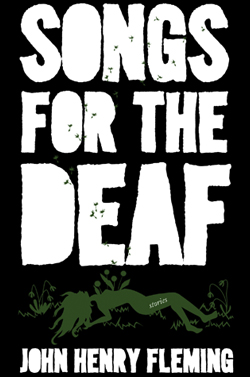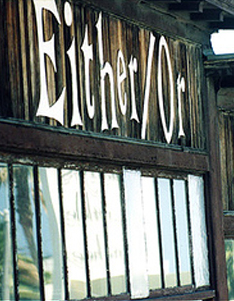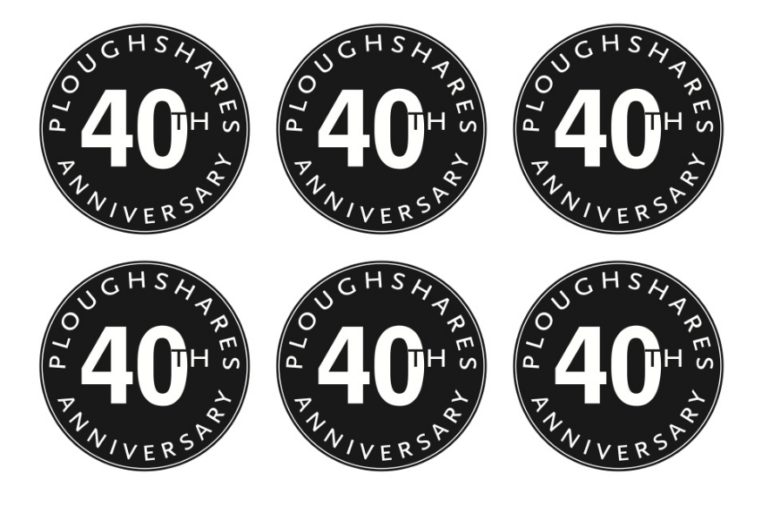Literary Boroughs #4: Ithaca, NY
The Literary Boroughs series will explore little-known and well-known literary communities across the country and world and show that while literary culture can exist online without regard to geographic location, it also continues to thrive locally. The series will run on our blog from May 2012 until AWP13 in Boston. Please enjoy the fourth post on Ithaca, New York by Sara Catterall. -Andrea Martucci, Ploughshares Managing Editor
Again school started, and on hillsides, where
Wound distant roads, one saw the steady stream
Of carlights all returning to the dream
Of college education.
– V. Nabokov, Pale Fire
Ithaca is a small city in the Finger Lakes region of upstate New York. It sits at the southern end of Cayuga Lake, surrounded by state parks, smaller towns, farms, and wineries. Like most other college towns it’s a little island of economic stability with liberal politics, an active cultural scene, and bartenders with PhDs. A single storm can drop three feet of snow in January or April, and that scares some people away, but outside of the mud seasons in late fall and early spring, it is beautiful here.
Ithacans love books. Used book stores proliferate, and on a weekday morning at the public library there’s often a line at the circulation desk. When our independent bookstore announced it would have to close in February 2011, over 600 individuals bought shares to resurrect it as a successful community-owned cooperative.
Throngs of writers live in and around Ithaca, and two of the New York Times 10 Best Books of 2011 were by current residents Eleanor Henderson and Téa Obreht.
Quick info
City: Ithaca, NY
What the city is known for/what makes it unique:
Higher education, spectacular waterfalls, Ithaca Gun (departed), and the Dalai Lama’s North American Seat, Namgyal Monastery.
Resident literary writers (a very incomplete list):
Diane Ackerman, Rebecca Barry, Peggy Billings, Paul Cody, Leslie Daniels, Amy Dickinson, Rachel Dickinson, Alice Fulton, Laura Glenn, Brian Hall, Paul Hamill, Eleanor Henderson, Katherine Howe, Edward Hower, Phyllis Janowitz, Sorayya Khan, Jay Leeming, J. Robert Lennon, Alison Lurie, Katharyn Howd Machan, Jeanne Mackin, Anne Mazer, Dan McCall, Ken McClane, James McConkey, Maureen McCoy, Paul McEuen, Fred Muratori, Robert Morgan, Téa Obreht, Stephen Poleskie, Ernesto Quiñonez, Nick Sagan, Beth Saulnier, Lyrae Van Clief-Stefanon, Stephanie Vaughn, Helena Maria Viramontes, Paul West, Alexi Zentner.
Literary references:
Ithaca and its campuses appear in many works by writers listed and not listed above. Their characters drink in our bars, renovate houses, have affairs with graduate students, and fall to their deaths in the gorges. Diane Ackerman’s recent Cultivating Delight provides a literary naturalist’s view of her Ithaca garden through the seasons. Vladimir Nabokov taught literature at Cornell for fourteen years and lived in ten different homes around town. Lolita, Pnin, and Pale Fire are all partially set here.
Where to learn:
Cornell University’s Creative Writing Program is one of the top MFA programs in the country. Here is a crazy long list of writers and poets who have attended or taught at Cornell. Ithaca College offers an excellent B.A. in Writing, and the only one in New York State.
Buffalo Street Books hosts workshops on the craft and business of writing, and the Constance Saltonstall Foundation offers workshops and month-long summer residencies for writers and visual artists.
Where to find reading material:
Buffalo Street Books is our independent bookstore. They have a lively thoughtful selection, and a friendly well-read staff.
Other sources for new books include Colophon Books which specializes in “weird and horror” including UK imports, used and rare; and a Barnes and Noble.
Two of the best used bookstores downtown are The Bookery and Autumn Leaves Used Books.
The Tompkins County Public Library has an excellent collection and helpful librarians in an airy comfortable building downtown, and a substantial menu of online services.
Ithaca College Library allows visitor access to their physical collections. Cornell University Library offers visitor access to their on-site collections and resources, and many options for guest borrowing cards.
The vast, lush, well-organized Friends of the Library book sale is held in a dedicated warehouse over several weekends in the spring and fall. Book collectors and dealers travel long distances to attend, lining up and camping out the night before like it’s a rock concert. To give the amateurs a chance, there is a 50 item limit the first day. They claim to have an average of 250,000 items to choose from, which is mostly books, but also includes comics, maps, records, sheet music, children’s books, games, old sewing patterns… you will find something you want.
Where to get published:
Epoch is Cornell’s highly respected print literary journal, in continuous publication since 1947. Two online literary journals are based partly here and partly in New York City: Essays and Fictions is an online journal of literature and criticism, and the quarterly online journal IthacaLit publishes poetry, non-fiction, and visual art. Ithaca College has noah, a student-founded and -run online magazine that is open to general submissions. Local poet Jay Leeming is the founder and editor of the print magazine Rowboat: Poetry in Translation.
Two Ithaca small presses are Split Oak Press, which also holds poetry chapbook and flash prose contests, and is currently seeking poetry submissions for an Adrienne Rich anthology; and Essay Press, which publishes single essays in book form.
Where to write:
I’m a home writer myself, but many other people write in the Gimme! Coffee shops. The various locations of Ithaca Bakery and Collegetown Bagels can be crowded but there are always people working in them and you could eat in them all day, wrecking your keyboard with Ithaca ginger ale and locavore Bánh mì crumbs. In the winter, Purity Ice Cream can be a quieter alternative for Gimme! coffee and wifi, though I can’t recommend trying to work there in warm weather. The public library’s Ezra Cornell reading room is a dedicated quiet zone, with research help nearby. I don’t think I’ve ever written in a bar, but if I was going to, I would try Felicia’s Atomic Lounge, the owner is a writer and cartoonist herself.
If you like to write outdoors, there are plenty of public parks to choose from. The Cornell campus is full of beautifully gardened nooks with benches in them, and you can move into one of the libraries if it rains, assuming you aren’t way out in The Plantations. For a somewhat more urban experience, visit DeWitt Park or the pedestrian-only Commons downtown.
Events/Festivals:
SpringWrites is our annual literary festival featuring local writers. SOON Productions hosts poetry readings, and Ithaca Area Poets holds open mike events. Buffalo Street Books has an active calendar of readings, workshops, and jazz, and recently started a competitive story-telling event called Trampoline at Lot 10 Kitchen and Lounge.
The public library offers readings and workshops and hosts an annual Community Read: this summer it’s The Life Before Us by Romain Gary.
During the academic year there are public reading series at Cornell University and Ithaca College featuring resident and visiting writers. One hour north is Syracuse University’s public Raymond Carver reading series and other events which this spring included free public lectures by Jonathan Franzen and Zadie Smith.
Next post: June 15 | Brooklyn, New York…
Bio: Sara Catterall was born in Ankara, grew up in Minneapolis, and lives outside Ithaca, NY with her family. She has a BFA from NYU, and an MLS from Syracuse University. Her work has been or soon will be published in Eclectica magazine and The Sun magazine, and she recently completed a novel. Sometimes she is on Twitter @SaraCatterall


